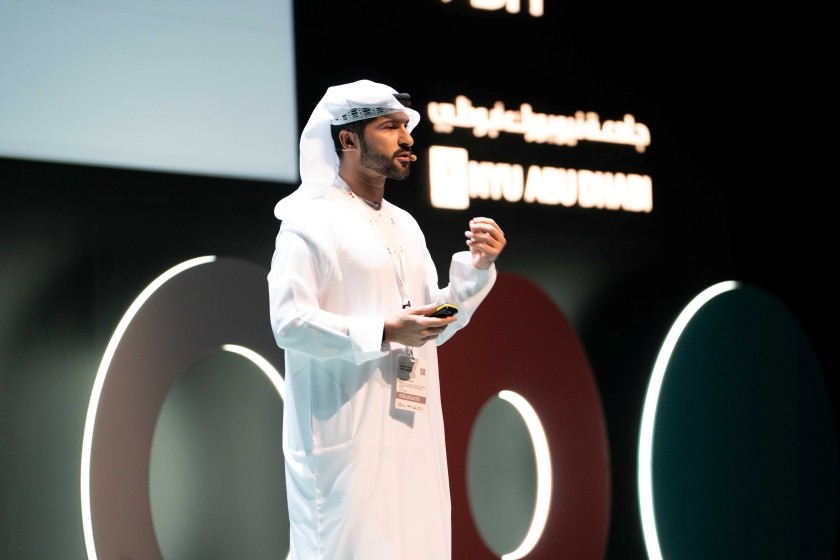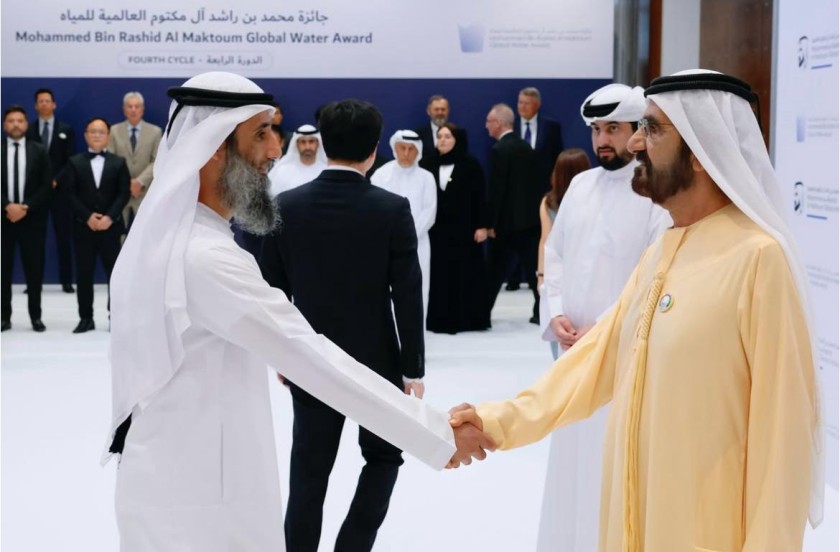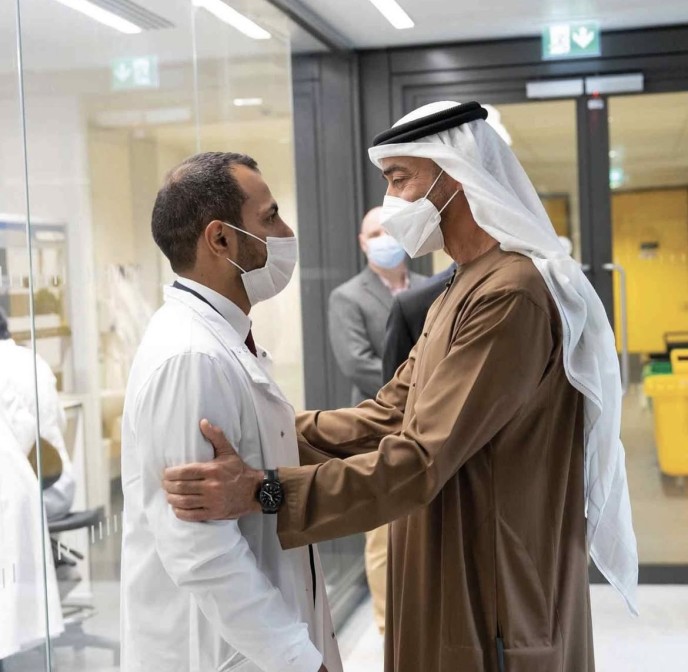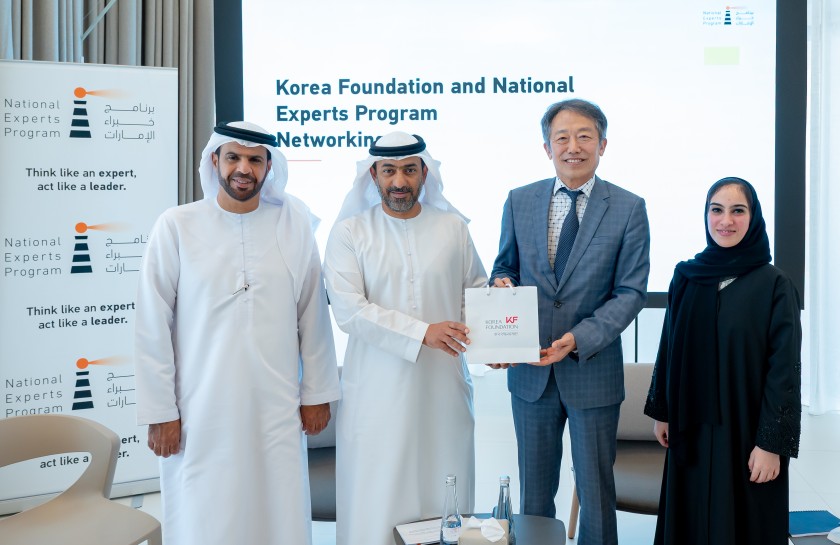Local Expertise, Global Impact: H.H. Sheikh Mohammed bin Rashid Al Maktoum honors NEP 4.0 expert Dr. Faisal Almarzooqi at MBR Global Water Award
BLOG: The NEP Experience

May 1, 2025 | NYU Abu Dhabi
NEP 4.0’s commitment to applied expertise and innovation came into sharp focus at BX2025: “Shaping Behaviors, Shaping Policy”—a dynamic behavioral science pitch lab organized by BSG. Eight NEP experts pitched behavioral intervention ideas rooted in national priorities.
Moderated by NEP Fellow and CEO of Ghame Consultancy Mariam Almeraikhi, the event featured five-minute pitches followed by live Q&A, offering experts the opportunity to test the clarity, feasibility, and potential of their ideas before an esteemed jury panel. The panel included:
- H.E. Homaid Al Shimmari, Deputy Group CEO and Chief Corporate & Human Capital Officer at Mubadala
- Rasha Attar, Director of the Behavioral Science Group at the Presidential Court and NEP Program Committee Member
- H.E. Ahmed Al Shamsi, Director of National Experts Program
- David Halpern, President Emeritus, Behavioural Insights Team (BIT)
- Lucia Reisch, Director, El-Erian Institute of Behavioural Economics and Policy, University of Cambridge, UK
The jury evaluated each pitch based on its behavioral grounding, practicality, and alignment with real-world impact. Faisal Al Hawi was named the winner for his compelling proposal on addressing children’s screen time through school-based behavioral nudges.
Each expert brought forward a concept shaped by both professional experience and community relevance:
- Faisal Al Hawi proposed a school-integrated intervention to reduce excessive screen time among children aged 6–10. His idea combines designated screen-use areas, peer influence, and incentive structures to promote healthier digital habits—designed to be easy to pilot and scale across school networks.
- Mohamed Alwahedi tackled the social and financial pressures tied to traditional Emirati weddings. His proposal aimed to normalize simpler, more affordable “Medeem” afternoon weddings by engaging respected community figures, leveraging social proof, and adjusting defaults offered by service providers.
- Sumaya Al Hajeri explored digital education through a behavioral lens, introducing a campaign that motivates youth to create and share educational content online. Her proposal used gamification, comparative nudges, and peer recognition to reposition content creation as aspirational and socially valued.
- Khulood Alawadi focused on the underrepresentation of Emirati fathers in school life. Her intervention used storytelling, peer-led examples, and low-barrier school engagement activities to reframe fatherhood norms and positively influence boys’ academic outcomes.
- Mohammed Janahi addressed consumer purchasing behavior, encouraging the public to choose locally made products through in-store visual cues, loyalty incentives, and point-of-sale nudges—designed to support national industry and shift default choices in everyday shopping.
- Maryam AlFalasi targeted food waste at the retail level, proposing a structured food donation SOP for supermarkets. Her idea featured visual sorting guides, NGO pickup schedules, and a tracking system for donated food, backed by brand recognition incentives for retailers.
- Dr. Mohamed AlAmeri introduced “Mawada,” a premarital screening platform launched during Ramadan to support informed marriage decisions and reduce the prevalence of rare genetic diseases. The intervention blends religious framing, anonymous access, and expert-led education to improve health outcomes.
- Rawdha AlQubaisi focused on cultural integration for long-term expatriates. Her concept, “Duroob,” is a mobile platform offering storytelling, guided reflection, and community-based experiences that foster cultural fluency and a deeper connection to Emirati identity.
Stay tuned as these ideas evolve, and as NEP continues to embed behavioral science into the heart of national development.



